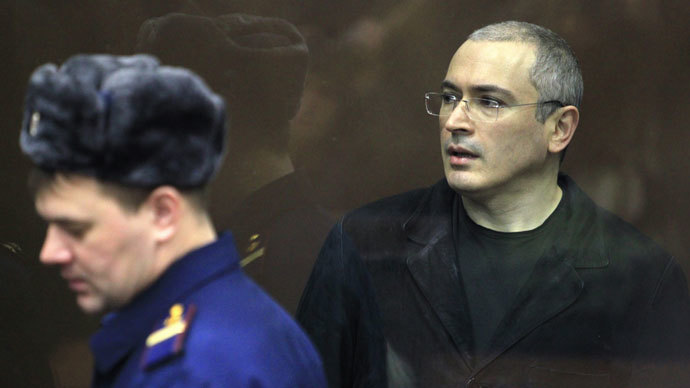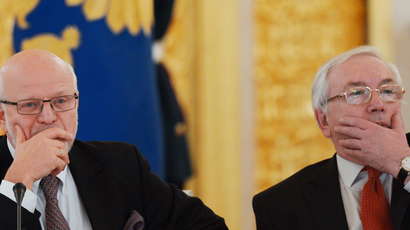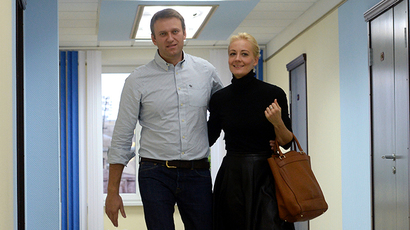Khodorkovsky, Pussy Riot members may be part of amnesty

Former oil tycoon Mikhail Khodorkovsky may be freed under an amnesty dedicated to the 20th anniversary of the Russian Constitution, the country’s leading human rights official said after a meeting with President Vladimir Putin.
“Yes, I think so,” Mikhail Fedotov, head of the
Presidential Council on Civil Society and Human Rights, said when
asked by the journalists about the prospects for Khodorkovsky’s
early release.
Formerly Russia’s richest man and head of major oil firm Yukos,
Khodorkovsky was arrested in 2003 and later sentenced to nine
years in prison on embezzlement and tax evasion charges.
In 2010, Khodorkovsky’s prison term was prolonged after he was
found guilty of large-scale theft of oil and money laundering in
a separate case.
The former tycoon is due to be released from prison in August
2014 after spending nearly 11 years behind bars – but the amnesty
may now reduce his time.
The members of the Pussy Riot punk band, who staged a protest in
Moscow's Christ the Savior Cathedral, may also be pardoned,
Fedotov was cited by RIA-Novosti news agency as saying.
The same goes for top opposition figure Aleksey Navalny, but only
if the clause that foresees the pardoning of those on probation
remains in the bill after it receives parliamentary approval,
Fedotov said.
Navalny, who came second in the race for Moscow mayor in
September, received a five-year suspended sentence for
embezzlement in October.
Fedotov spoke to the media after he and Russia’s Ombudsman for
Human Rights, Vladimir Lukin, visited Vladimir Putin’s residence
outside Moscow on Wednesday.
During the meeting, the Russian president expressed his support
for the amnesty bill, which the Council on Civil Society and
Human Rights has prepared.
“I agree with your proposal as a whole,” Putin said.
“We’ll modify this document together with the deputies of the
State Duma, and I’m asking you to actively participate in this
process.”
But the head of the state emphasized: “The amnesty can only
cover people who have not committed grave crimes and violent
actions against representatives of state authority, I mean law
enforcers, first of all.”
Lawyers have hurried to interpret those words that those
convicted and tried for participation in the May 2013 riots at
Moscow’s Bolotnaya Square shouldn’t hope for amnesty.
The Greenpeace activists who were detained after an attempt to
board Russia’s Prirazlomnaya oil platform in the Barents Sea in
September, are unlikely to fall under the amnesty, Greenpeace’s
lawyer Anton Beneslavsky said.
“Hooliganism is a grievous crime under Russian law,” he said.
Later Wednesday, Putin’s press secretary, Dmitry Peskov, said it
was too early to talk about specific people who may be freed
under the amnesty.
According to Fedotov, the amnesty dedicated to the 20th
anniversary of the Russian Constitution, which is celebrated on
December 12, 2013, may affect around 100,000 people.














